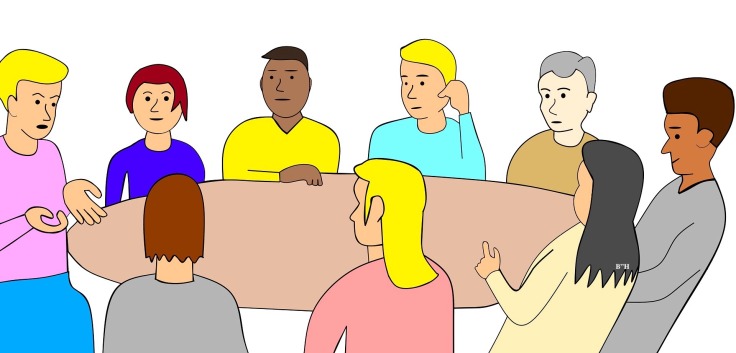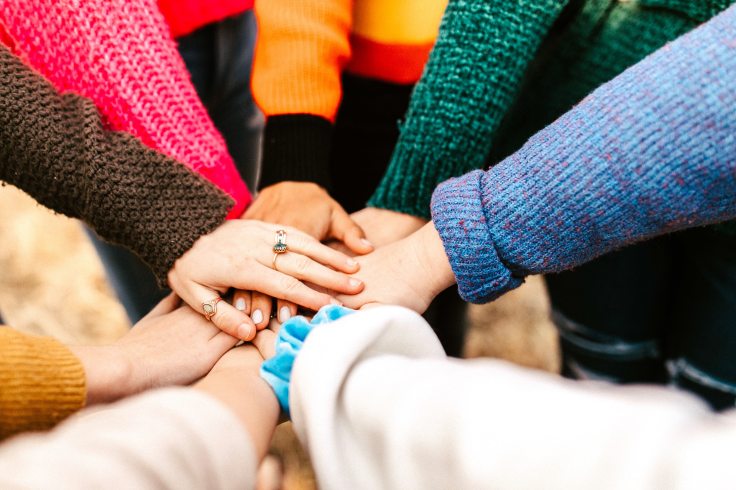In March of 2020, my dear son Jacob unexpectedly passed away at age 24. I carry the grief of his passing constantly. I have the additional anguish of being unable, or not having the opportunity, to talk about my feelings of grief to others.
Talking about one’s feelings to others can be emotionally, and even physically, beneficial. It is well known that those who talk about their problems and communicate their feelings to others are more able to successfully deal with their troubles. For those of us who have lost a child, talking about our feelings of grief is very painful. It’s often harder for us because sometimes we have no one to talk to.
The Lubavitcher Rebbe would say that when a person passes away, those who suffer most are the family and friends who remain in this world.
So who can I talk to?
Can I Talk To the Grief Therapist?
Some months after Jacob passed away, I spoke with a grief therapist once a week. It was helpful for around a month and a half. We spoke about meditation, sleep issues, and imagery to help me cope with child loss. The summary of our sessions, in a nutshell, was that it’s going to take a very long time for me to deal with my loss. There’s no way around it. It seemed that our meetings hit a plateau and things just weren’t going anywhere.
I learned that grief therapy is not grief support. The purpose of the grief therapy sessions was to help me change my behavior and how I react to the reality of living without my child. The purpose of grief support is to help me cope with my loss for the long term, a loss that will never go away. That’s where I headed next.

One on one therapy for child loss helped me, but only for a awhile. I had to move on to something else.
Can I Talk To A Grief Support Group?
I participate in a grief support group and it’s very helpful. Everyone in this group had a child who died as a young adult. Since we’re all in the same boat, we feel comfortable talking with one another. The moderator offers good insights and keeps the conversation going. We meet every two weeks. Problem is, grief over my child doesn’t go on hold for two weeks. Even now, a year after Jacob’s passing, I still need to vent my feelings of sadness and frustration. Who do I talk to between group sessions?

A support group for child loss is helpful, but how do I cope between sessions?
Can I Talk To Friends and Relatives About Child Loss?
Even though there may be plenty of people around us, like friends or relatives, sometimes those closest to us may not be the best people to help us cope with the grief of losing a child. If a person hasn’t experienced the pain of child loss, it’s hard for them to relate to feelings of losing something so precious as a child.
People ask me how I’m doing. How do they think I’m doing after losing my child? I don’t want to get people feeling down, so I smile, talk about how my day is going, etc. I make small talk. But really, my mind is on Jacob. I think about him from the time I wake up in the morning until I go to bed at night. Since my brain can’t concentrate on two things at once, when I’m concentrating on a specific task, I don’t think about him. But when I’m finished with whatever it is I’m doing, my mind goes right back to Jacob.
I have dear friends who are simply uncomfortable talking about my son. These folks have known our family for many years and knew Jacob as a child. I think they are so concerned about causing me pain that they don’t want to bring up the subject of his dying for fear it will make me sad, or perhaps even offend me. I’d like to talk to them about Jacob, but I won’t. I don’t want to make them feel uncomfortable taking about a loss they can’t relate to.
At the other extreme, there are a few family friends with whom I can talk about child loss. However when I do, they focus on their own feelings, not mine. When I begin to speak about my son, they tell me how miserable they feel, how terrible it all is, and so on. I feel that I have to comfort them rather than the other way around. They mean well. They care. They just don’t give me anything I can work with to feel better.

Friends can be sympathetic to the parent’s plight of child loss, but sometimes, even friends are uncomfortable talking about loss.
Can I Talk to G-d?
G-d wants us to interact with Him. He desperately wants us to have an ongoing relationship with Him. We see this from the narrative in Creation after Adam and Eve ate the forbidden fruit. G-d tells them:
‘By the sweat of your brow shall you eat bread…’ (Genesis 3:19)
In contrast, G-d says to the snake:
‘…upon your belly shall you go, and dust shall you eat all the days of your life…’ (Genesis 3:14)
G-d is telling the snake ‘I’m putting your food right in front of you. Don’t ask me for anything. I don’t want to hear from you.’ But to Adam and Eve, G-d tells them they would have to work hard to obtain their physical sustenance. They would have to work the land and pray for G-d’s mercy that the crops should grow. Despite their misbehavior, G-d wants Adam and Eve to have a relationship with Him.
Hide and Seek With G-d
There is a story is about the Maggid of Mezritch. One day, his son came to him crying. The Maggid asked him why he was crying. The boy said he had been playing a game of hide-and-seek with his friends. After a long while, he had come out of his hiding place and saw that his friends gave up looking for him and went away. The Maggid said that G-d shares his son’s feelings. G-d hides himself from us so that we should come and look for him.
The Power of Prayer
Rebbe Nachman of Breslov (1772-1810) constantly spoke about the power of hitbodedut or meditation. This is finding a quiet place, away from people, and speaking to G-d in one’s own language. It’s a form of prayer, but we don’t necessarily have to ask for anything. We can vent our frustrations, cry, and pour out our hearts to Him. We can talk to Him like we would talk to a friend or a parent. After all, He is our Heavenly Father.
It seems the only one who’s really wants to talk with me about my departed son is G-d. He’s always there for me. He’s never too busy to listen to my complaints and see my crying. My child is His child too and He feels my loss. He talks to me too, and if I listen, I can hear him. It’s not like I hear voices or anything. It’s just that sometimes, some comforting thought pops into my head. I know He put that thought in there.
G-d takes pleasure when we reach out to Him. Even it’s nothing more than saying ‘G-d, I want to talk to you, I just don’t know what to say’, that in itself is talking to G-d because we’re showing Him that we’ve made Him a real part of our life. That’s real prayer. That’s really talking to someone.

For me, reaching out to G-d is the best form of therapy.

Thank you for an important post. One challenge for me as a friend/family member is that I don’t feel confident in my listening skills when the mourner wants to talk about their loss.
I recall having lunch with a friend who had lost her father several years ago. Pesach was coming up in a few weeks and my friend mentioned how she disliked Pesach because her family was small and without her father, the seder was a much more quiet, somber, serious affair rather than a fun family dinner. I nodded and remarked that made a lot of sense, but I couldn’t tell if it was my cue to ask her more questions about how she was doing. Looking back, I wish I had done a better job of giving her space to speak about her loss, even years after the fact, and a better job of listening.
Many people don’t know what to say or what not to say to someone who has lost a loved one. Don’t berate yourself. The fact that you validated her feelings was a big plus. Sometimes, not saying anything, but just listening, is all that’s needed.
Thank you. I think in general, we do not do just a good job of listening